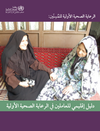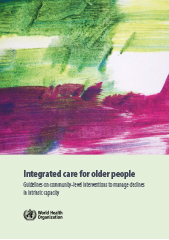WHO has recognized the critical role that primary health centres play in the health of older persons in all countries and the need for these centres to be accessible and adapted to the needs of older populations.
In 2002, WHO initiated a related age-friendly primary health care project in order to sensitize and educate primary health care workers and build capacity in primary health care centres to provide for the specific needs of their older users.
Consequently, all primary health care workers should be well versed in the diagnosis and management of chronic diseases in older people.
Objectives
The objectives of the age-friendly primary health care project are to:
- improve the primary health care response for older persons
- sensitize and educate primary health care workers about the specific needs of older clients
- assist primary health workers in how to operate geriatric care instruments/tools
- raise awareness of the accumulation of minor and major disabilities experienced by older people among primary health workers
- provide guidance on how to implement primary health care management procedures
- be more responsive to the needs of older people
- provide guidance on how to conduct environmental audits to test primary health care centres for their age-friendliness.
Related documents
Towards age-friendly primary health care guidelines [pdf 426.16kb]
Age-friendly primary health care centres toolkit [pdf 2.29Mb]
Trainer guide for normal ageing and communication [pdf 296.99kb]






